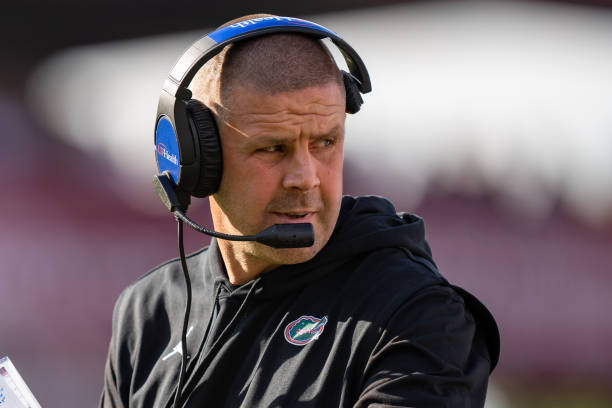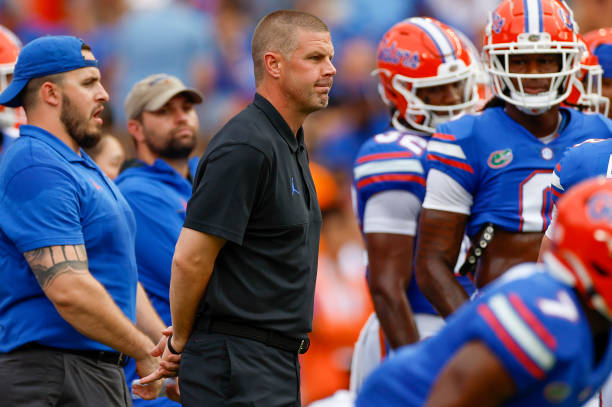Gators coach Billy Napier and two co-defendants in Jaden Rashada’s name, image, and likeness (NIL) lawsuit have accused the blue-chip quarterback’s legal team of pushing “cunning conspiracy theories” in their multimillion-dollar federal complaint.
This statement came on Tuesday as former Gators staffer Marcus Castro-Walker filed a motion to dismiss the suit against him in the U.S. District Court for the Northern District of Florida. Napier and prominent booster Hugh Hathcock also submitted motions to dismiss.

The response is directed at the seven-count complaint Rashada filed in May against Napier, Castro-Walker, Hathcock, and Hathcock’s car company, alleging fraud, negligence, and interference with business deals. The lawsuit claims Rashada had a $9.5 million NIL offer as a recruit to play at Miami but flipped to the Gators after receiving a $13.85 million offer over four years.
Rashada was a top-100 national recruit in the 2023 class from Pittsburg High School in California.
“Nothing alleged in the complaint supports the notion that Napier participated in any wrongdoing,” Napier’s motion to dismiss states. “Nowhere does the complaint adequately allege, for example, that Napier knew about whatever occurred between Rashada, his ‘NIL agents,’ and the Gator Collective, LLC. In fact, the complaint makes clear that Napier could not have defrauded Rashada, since the sole statement attributed to Napier is alleged to have been made after Rashada had already abandoned the Miami NIL deal.”

Castro-Walker refuted fraud claims, arguing that the suit never accused him of personally agreeing to pay or do anything.
“The simple truth is that overly optimistic ‘promises’ are made every day in college football recruiting,” his response stated. “Opening the doors of the federal courthouse to every college football player seeking injunctive relief or specific performance of an ‘oral contract’ when their dream doesn’t materialize would only lead to a class of plaintiffs larger than any mass tort action on record.”
Castro-Walker’s attorneys contended that sovereign immunity protects his actions from such lawsuits since his good-faith recruiting was part of his job for a state-related entity (the Gators). His filing also mentioned that he repeatedly informed Rashada’s representatives that he would not be involved in “prospect dealing,” as NCAA rules prohibit school employees from using NIL as a recruiting inducement.
According to Rashada’s suit, the terms included a $500,000 signing bonus from Hathcock or his business ventures. The complaint also alleges that Napier personally vouched for a $1 million payment from Hathcock, which never materialized.
“(Rashada’s) complaint contains extensive legal conclusions and speculation, lacking the allegations of fact necessary for his claims against Hathcock,” Hathcock’s attorneys argued in his motion.

